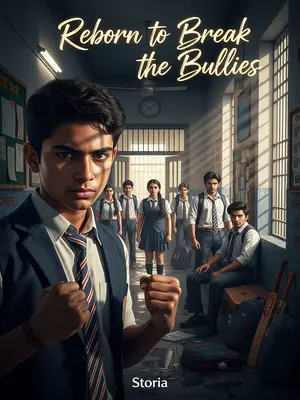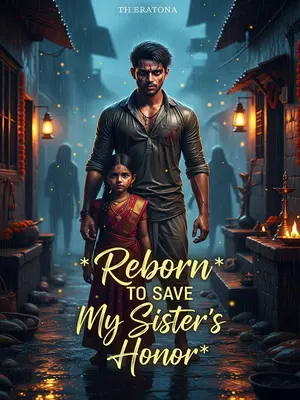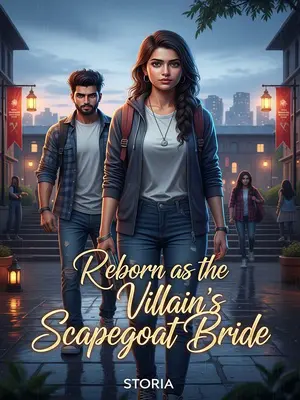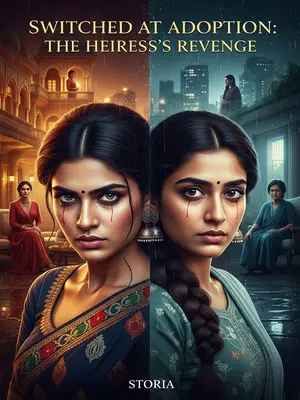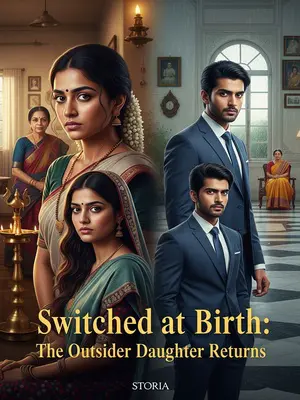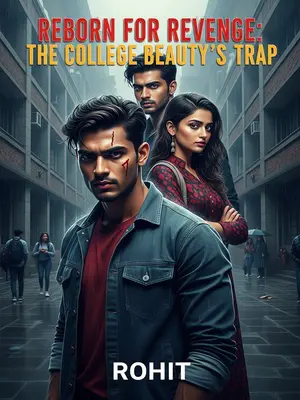Chapter 6: The Hospital Showdown
When I arrived at the hospital, not only were my Chacha ji and Chachi ji there, but my parents had also arrived.
The hospital buzzed with activity—people rushing, the strong smell of Dettol, announcements echoing. My family huddled in the corridor, faces swollen, eyes accusing. I took a deep breath, ready for battle.
As soon as I pushed the door open, a steel glass came flying at me.
The clang echoed across the ward. Other patients’ relatives looked up, the nurse rushed over, her bangles clinking. “Arrey, aap log yahan ladaai mat kariye!” she scolded.
I dodged, and the glass shattered on the floor with a crash.
Tiny droplets of chai splattered on my jeans. A patient in the next bed muttered, “Yeh log bhi na…”
"Get out! All of you get out!"
Amit's voice was hoarse, raw from shouting and crying. He thrashed about on the bed, fists clenched, face twisted with pain.
"Are you all here to laugh at me? My legs are gone!"
His words echoed off the hospital walls. Chacha ji tried to speak, but the words died in his throat.
"Both my legs are gone! I want to kill you all!"
His voice rose to a shriek, drawing everyone’s attention. The old woman in the next bed muttered a prayer.
I was startled and looked at the hospital bed.
For a second, I couldn't breathe. The white bandages, awkward pillows, IV drip gently swaying—this was not how I had hoped things would turn out.
Sure enough, on the bed, from the base of Amit's thighs down, nothing remained, both legs now wrapped in bandages.
The sight sent a wave of nausea through me. My cousin, once full of life and dreams, now lay broken. My hands trembled, but I forced myself to look.
Unlike my previous life, when he only lost one leg and the other was saved in time—now, both legs were gone!
The difference hit me like a punch to the gut. The old story had changed, but the pain remained.
Wasn't it supposed to be only one leg?
I blinked, as if trying to wake up from a bad dream. I looked at the doctors, hoping someone would explain, but no one met my eyes.
Seeing my shocked expression, Amit glared at me, as if he wanted to tear me apart.
Amit’s hands clenched the bedsheet, jaw tight. “Tu aaya kyun, ab? Sab kuch khatam kar diya tumne!”
His eyes burned with a fury I had never seen before. My mouth went dry. For a moment, I wondered if hatred alone could kill.
"Rohan, are you happy now? Why did you come so late!"
His accusation rang out, drawing gasps from nearby beds. My parents looked away, unable to meet my gaze.
"If you'd come earlier, would I have had the strength to kick the anaesthesiologist and delay the treatment!"
His logic was twisted, but in his grief, he needed someone to blame. I clenched my fists, willing myself not to react.
"At least, at least I'd still have one leg!"
The anguish in his voice was unmistakable. My heart ached, but I knew nothing I could say would make a difference.
"I'll kill you, I want to kill you!"
He thrashed about, but the tubes and bandages held him in place. The nurse rushed in, scolding in a mix of Hindi and English, but Amit barely noticed.
Unfortunately…
Life, as always, was cruel. The universe never cared for our plans.
He had lost both legs, and could only lie helplessly on the bed, raging in vain.
Amit's tears streamed down his face, his body shaking with fury. My Chacha ji and Chachi ji stood by, numb with shock.
My Chacha ji and Chachi ji whimpered on the side, saying nothing.
They huddled together, clutching each other. Chachi ji wiped her eyes with her saree, lips moving in silent prayer.
My parents, as if something was wrong with their heads, actually echoed Amit's words.
They nodded along, desperate to shift blame. My father's face was dark, my mother’s mouth a thin line.
My mother even slapped me on the back, muttering a prayer under her breath. “Bhagwan sab thik kare,” she said, threatening to call my father if I didn't listen.
The slap was more symbolic than painful, but the humiliation stung. The nurse gasped, but said nothing.
"That's right, Amit, why did you come so late!"
Her voice rose, drawing more stares from the ward.
"Didn't your Chachi ji tell you to come back early? You…"
She trailed off, but the accusation hung in the air.
"If you'd been here, you could've kept Amit in check, he wouldn't have kicked the anaesthesiologist!"
The irony was lost on her. Even in crisis, the Indian instinct is to blame the one who seems most responsible.
"Do you know? The anaesthesiologist already had the injection ready, but with that kick, he stabbed himself with the needle!"
Her voice was breathless with outrage. The other relatives in the ward listened, wide-eyed, as if watching a real-life episode of their favourite serial.
"It wasn't until another anaesthesiologist came down from the OT that he could be treated, and this delay wasted more than an hour!"
The story grew more dramatic with every telling. My mother wiped her brow, as if the effort of explaining it all was too much.
"If you had been here, this wouldn't have happened…"
Her words trailed off, but the message was clear. No matter what, I was always at fault.
Listening to my mother's nagging, I couldn't help but feel a chill inside.
The air in the room felt icy, even in the muggy hospital heat. I looked at my family, realising just how little had changed.
It's always like this, always like this.
A familiar wave of resignation washed over me. No matter how hard I tried, I was always the scapegoat.
When facing outsiders, the first thing they do is always push the responsibility onto me.
Years of carrying this burden had left me tired. I wondered if I would ever be free of it.
When we were little, my cousin would come to my house to eat, snatch my chicken leg, I'd take it back, my cousin would cry, and my mother would scold me—saying I didn't know how to care for my brother.
The memory made me smile, bittersweet. The rules had never changed; only the stakes were higher now.
My cousin fought at school, the other kid's parents came, my parents said I didn't watch my brother properly.
I remembered standing in front of the principal, shuffling my feet, as my parents apologised on Amit's behalf—and blamed me for 'not being a good example.'
Even when my cousin thought studying was useless and delivering food paid better, they made me try to persuade him, and when I couldn't, they said I was useless.
Their disappointment became a constant presence, a shadow that followed me everywhere.
My cousin's life was ruined—somehow, it was all my fault.
The weight was suffocating. I wanted to scream, but knew it would do no good.
I don't understand.
The words stuck in my throat, unspoken but ever-present.
Why are they always so accommodating to outsiders, acting like such good people, but always push responsibility onto me?
A mystery as old as our family itself. I wondered if things would ever change.
It was like this in my previous life.
The realisation was bitter, but freeing. I was not the problem—their mindset was.
And now, it's still like this.
Some lessons take a lifetime to learn. This time, though, I would not let it break me.
But it's fine. Since I already know what they're like, I was prepared.
I straightened my back, ready to face whatever they threw at me next.

